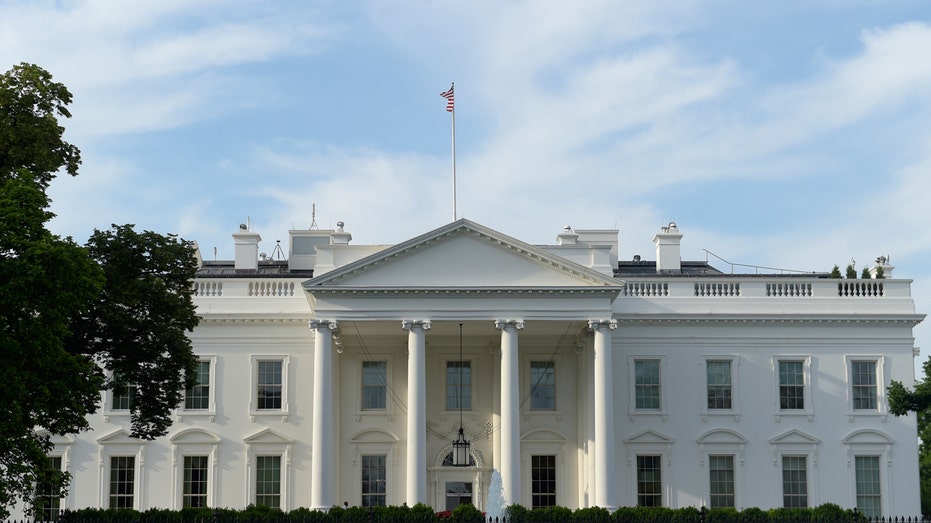You are using an out of date browser. It may not display this or other websites correctly.
You should upgrade or use an alternative browser.
You should upgrade or use an alternative browser.
Current news thread
- Thread starter Brasstax
- Start date
More options
Who Replied?Technically speaking a mass shooting.

Terry Clark Hughes Jr. Is Suspect in Deaths of 4 Officers in Charlotte, Police Say
Terry Clark Hughes Jr. is the suspect who opened fire at the scene where four police officers in Charlotte, North Carolina, were shot and killed, according to Charlotte-Mecklenburg police.heavy.com
Reggs
Veteran XX
The tents I've seen are not uniform either. There is money being spent on these protests, but they are giant videoboards showing Hamas crimes, busses with videoboards that drive around naming students who are antisemetic. No one as far as I know is getting out of jail with jewish phone numbers on their arms. I don't think there's an invisible hand behind this. It's just too cool to stop, and Israel is going to give them many years to bitch about now. Israel won't care if American jews are having a rough time because of this at all. If anything it would benefit Israel if American jews moved there.Not funded??? jfc Regg,,, ya, they all just happen to have the same type of REI tents.
I'd really like to see what the percentage of real students are part of these protests,
and then I'd like to see how many of these protesters are even US citizens.
Reggs
Veteran XX

Terry Clark Hughes Jr. Is Suspect in Deaths of 4 Officers in Charlotte, Police Say
Terry Clark Hughes Jr. is the suspect who opened fire at the scene where four police officers in Charlotte, North Carolina, were shot and killed, according to Charlotte-Mecklenburg police.heavy.com
How tall is this man? He has a tiny coconut head. Most likely there is a racial element to the shooting. Short man syndrome would really push a man to the edge though.
Reggs
Veteran XX
I've been watching early 90s episodes of Cops. You can see the manpower used for small time drug possession on the show then and it's insane. I always wanted it legal, but today's marjuana tech is nothing like what I anticipated. The teenagers are not smoking herb then going out to skateboard, they're smoking 70%+ pure THC concentrate and never going out with friends or talking to girls.
Ted Kaczynski would not make the mistake I did. He would have taken technological advancement into account when thinking of this in years past. Imagine a future where there are many non-addictive drugs that are impossible to OD on, but still hamper the lives of otherwise productive men. Technology will make that happen. What will your drug politics be at that point?
Ted Kaczynski would not make the mistake I did. He would have taken technological advancement into account when thinking of this in years past. Imagine a future where there are many non-addictive drugs that are impossible to OD on, but still hamper the lives of otherwise productive men. Technology will make that happen. What will your drug politics be at that point?
don't tell mitchHow tall is this man? He has a tiny coconut head. Most likely there is a racial element to the shooting. Short man syndrome would really push a man to the edge though.
Brings new meaning to a "firewall" in the automotive context

 www.foxbusiness.com
www.foxbusiness.com

Industry group warns of Chinese connected vehicles
The White House is investigating whether connected vehicles — especially connected to China — pose a threat to U.S. national security.
The U.S. Commerce Department’s 60-day window for public comments regarding the national security concerns of connected vehicles closed this week, with a leading transportation group issuing a grave warning about potential threats to the U.S. automotive industry.
The threats surround the possibility of foreign adversaries — particularly China — taking advantage of the technology in connected vehicles to steal sensitive user data information and even stage cyberattacks.
The Department of Transportation (DOT) lists connected vehicle technologies as "applications, or systems that use V2X communications to address safety, system efficiency, or mobility on our roadways."
Additionally, the technology uses "data from short-range communication broadcasts and peer-to-peer exchanges within approximately 300 meters to ‘sense’ what other travelers are doing and identify potential hazards," according to the DOT.
That information, however, could be in jeopardy due to sophisticated Chinese components included in the vehicles from the automotive supply chain.
Consequently, the Biden administration in February opened an investigation to address the national security risks from connected automobiles that incorporate technology from China and other possible adversaries.
In a statement, the White House pointed out that the large amounts of sensitive data in connected vehicles — including on cameras and sensors — posed significant risks.
"Connected vehicles collect large amounts of sensitive data on their drivers and passengers; regularly use their cameras and sensors to record detailed information on U.S. infrastructure; interact directly with critical infrastructure; and can be piloted or disabled remotely," the statement read.
"Connected autos that rely on technology and data systems from countries of concern, including the People’s Republic of China, could be exploited in ways that threaten national security. China has imposed wide-ranging restrictions on American autos and other foreign vehicles operating on their roads," the White House added.

The White House opened an investigation into the connected vehicles on February 29, 2024.
Now, a leading industry group, named Securing America’s Future Energy (SAFE), has made public their comments that the Commerce Department sought on the issue, describing the litany of risks to U.S. national security that the technology poses.
"Foreign adversaries are cornering and leveraging key supply chains to geopolitical and economic ends — with outcomes that could range from cyberattacks on U.S. soil to the gathering of sensitive information and strategic intelligence," said Avery Ash, the Executive Director of SAFE’s Coalition for ReImagine Mobility (ReMo).
"The scope, scale, and urgency of this national security risk comes at the same time the automotive industry is experiencing a transformational shift. The focus should be on expediting the integration of these technologies to ensure their integrity while safeguarding them from vulnerabilities and disruptions from foreign adversaries," Ash continued.
In SAFE’s ReMo comments for the Commerce Department, they say that Chinese firms "dominate the production" of many essential components for the vehicles.
ReMo goes on to say that China typically enters the American automotive market by acting as a supplier for parts manufactured in Canada and Mexico, instead of directly shipping fully assembled vehicles.
As a result, in 2023, "Mexico was the largest auto parts supplier to the United States, with China ranking third, but China was also the second-largest auto parts supplier for Mexico," according to SAFE.
Through this process, China could theoretically bypass any tariffs while gaining benefits from the United States — Mexico — Canada (USMCA) free trade agreement from 2020.
Asked about the tariffs, Ash told FOX Business that they have been generally effective but more needs to be done.

"The 27.5% tariffs the U.S. has on Chinese cars has kept their market share near zero even as imports to Europe have skyrocketed. With reports the Chinese automaker BYD is considering opening a plant in Mexico, many have speculated that would be part of an effort to enter the U.S. market and circumvent U.S. tariffs," Ash stated.
"This Commerce Department investigation starts the process of adding another tool to the toolkit that this administration or a future administration could use to prevent that end-around under national security grounds without undermining the USMCA," the ReMo Executive Director said.
Elsewhere, the Commerce Department’s investigation has caught the eye of members of Congress, with lawmakers on both sides of the aisle expressing their support to crack down on the technology.
"Chinese automakers have already deployed their autonomous vehicles here and are using them for surveillance and to collect data, meanwhile banning American vehicles on their own streets," Rep. Debbie Dingell, D-MI, wrote in a statement when the investigation was announced.
"America has an opportunity to herald this new era of mobility and maintain our leadership at the forefront of the global auto industry, and we must do so in a way that protects Americans’ privacy and safety and strengthens our national security," Dingell added.
Meantime, the House Select Committee on Strategic Competition between the United States and the Chinese Communist Party has also taken an interest in the topic, as it seeks to further limit China from stealing American information.
The Committee, which has already tackled issues such as alleged Chinese espionage cranes, and the embattled application TikTok, notes that connected vehicles is yet another way for China to prey on U.S. vulnerabilities.
"Allowing Chinese internet-connected vehicles on U.S. roadways is an invitation for Xi Jinping’s global surveillance state to join American drivers in the passenger seat," Select Committee Chairman John Moolenaar, R-MI, told FOX Business.
"We need a level playing field: if China prohibits American vehicles from Chinese streets, then China-based automakers should not have an open road in the United States," the Chairman concluded.
I've been watching early 90s episodes of Cops. You can see the manpower used for small time drug possession on the show then and it's insane. I always wanted it legal, but today's marjuana tech is nothing like what I anticipated. The teenagers are not smoking herb then going out to skateboard, they're smoking 70%+ pure THC concentrate and never going out with friends or talking to girls.
Ted Kaczynski would not make the mistake I did. He would have taken technological advancement into account when thinking of this in years past. Imagine a future where there are many non-addictive drugs that are impossible to OD on, but still hamper the lives of otherwise productive men. Technology will make that happen. What will your drug politics be at that point?
This has a lot of truth. I like cheap sativa. Gets me high fine and I go about my day. Last week I was surfing with a couple guys and when we got out of the water one hands me a big joint and I took it home. I could tell by the smell it was wow. I don't smoke whole joints, so I broke it up and took some bong hits. Indica stuff that knocked me flat. I went to bed early and slept in late. Once in a while maybe but,,, naw, I don't need to be comatose.
As a boomer, my teenage years did feature an occasional bong hit or two. I didn't really like it though, I usually ended up puking my guts out, or at least having the world spinning around like a top with me desperately clinging to the floor waiting for it to stop. Once I graduated from HS I never touched the stuff, as I was in the military for the next 20 years..
When Washington State legalized weed about eight years ago, I decided to try it out again. I understood this wasn't my generation's weed, and so I was pretty hesitant about how much to smoke, being such a lightweight and all. I bought the remains of an ounce from a co-worker, probably an 8th. Bought a little pipe from a smoke shop. Went out to the porch in the back yard, discovered that the pipe had no screen and went inside the house and tore off a small bit of aluminum foil, poked holes into it, and made my own. Past experience paying dividends.
Took one small toke and sat there, waiting for something to happen. After a few minutes, I took another bit deeper toke, and after about 30 seconds, that familiar world spinning sensation hit me. I stumbled upstairs and collapsed on my bed and thankfully fell asleep. At least I didn't throw up this time. Last time I smoked anything. I do buy the occasional gummies, but usually the more CBD centric ones. I'm not fond of losing control over my body.
What I can't fathom is friends I know who spend their entire waking life high. They simply can't function within reality and have to get wasted all day. I assume their tolerance has been built up enough that they can withstand that amount of THC ingestion without spewing their guts out.
When Washington State legalized weed about eight years ago, I decided to try it out again. I understood this wasn't my generation's weed, and so I was pretty hesitant about how much to smoke, being such a lightweight and all. I bought the remains of an ounce from a co-worker, probably an 8th. Bought a little pipe from a smoke shop. Went out to the porch in the back yard, discovered that the pipe had no screen and went inside the house and tore off a small bit of aluminum foil, poked holes into it, and made my own. Past experience paying dividends.
Took one small toke and sat there, waiting for something to happen. After a few minutes, I took another bit deeper toke, and after about 30 seconds, that familiar world spinning sensation hit me. I stumbled upstairs and collapsed on my bed and thankfully fell asleep. At least I didn't throw up this time. Last time I smoked anything. I do buy the occasional gummies, but usually the more CBD centric ones. I'm not fond of losing control over my body.
What I can't fathom is friends I know who spend their entire waking life high. They simply can't function within reality and have to get wasted all day. I assume their tolerance has been built up enough that they can withstand that amount of THC ingestion without spewing their guts out.
that is the pussiest shit I have ever read
Awwww.....and to think I wrote that just to impress you personally. How sad.that is the pussiest shit I have ever read
I cried
Took one small toke and sat there, waiting for something to happen. After a few minutes, I took another bit deeper toke, and after about 30 seconds, that familiar world spinning sensation hit me. I stumbled upstairs and collapsed on my bed and thankfully fell asleep. At least I didn't throw up this time. Last time I smoked anything. I do buy the occasional gummies, but usually the more CBD centric ones. I'm not fond of losing control over my body.
What I can't fathom is friends I know who spend their entire waking life high. They simply can't function within reality and have to get wasted all day. I assume their tolerance has been built up enough that they can withstand that amount of THC ingestion without spewing their guts out.
7 employees just lost their jobs for THC vape juice. A guy was selling it on property, lol.
I don't understand what the 3 management people were thinking.
Brings new meaning to a "firewall" in the automotive context{QUOTE="Brasstax, post: 19643586, member: 14279"]

Industry group warns of Chinese connected vehicles
The White House is investigating whether connected vehicles — especially connected to China — pose a threat to U.S. national security.
But it's China

GM, LexisNexis face class action over telematics insurance data collection
Massive class action potential as Florida man sues over Liberty Mutual insurance rise
GM, LexisNexis face class action over telematics insurance data collection
Massive class action potential as Florida man sues over Liberty Mutual insurance rise

Technology
By Matthew Sellers
Mar 15, 2024Share
According to a NY Times report, last December Romeo Chicco faced rejection from seven insurance providers before finally securing a policy at nearly twice his former rate. A recent legal filing seeking to establish a class action claims the giant jump in premiums was linked to his 2021 Cadillac XT6’s invasive data tracking. And, as reported in Insurance Business earlier this week, Chicco isn’t the only policyholder complaining to the Times.
Dubbed by some as “smartphones on wheels”, many modern vehicles are internet-connected and equipped with various sensors and cameras. These sensors can, in some cases send telematics data back to the manufacturer, and from there the data can be sold to carriers. This telematics market is dominated by US-based Progressive, Allstate, Liberty Mutual, Nationwide and State Farm. At the end of 2022 there were 16.8 million telematics policies in the country – and growing at a CAGR of 11.7%, that number is predicted to reach almost 30 million by 2027.
Chicco claims that he had no idea that his car was telling anyone about his premium-increasing driving habits until learned from a Liberty Mutual representative that his insurance application was declined due to findings in his “LexisNexis report”.
LexisNexis Risk Solutions is a firm that compiles data for insurers on drivers’ histories and has been gathering information for insurers for a number of years. It had detailed records of Chicco’s driving habits, provided by Cadillac’s parent company, General Motors.
Upon reviewing his report from LexisNexis, Chicco discovered it chronicled 258 of his journeys in the last six months, including specific details like trip durations, distances, and instances of speeding or abrupt driving maneuvers. This discovery led him to file a lawsuit in the US District Court for the Southern District of Florida against General Motors and LexisNexis Risk Solutions, alleging breaches of privacy and consumer laws. This action comes in the wake of a New York Times investigation that uncovered the secretive sharing of driver information with insurers by car manufacturers, potentially leading to higher insurance premiums for some. LexisNexis and another company, Verisk, reportedly have access to a vast amount of driving data from countless vehicles.
Chicco’s pursuit for answers from GM and LexisNexis about the alleged unsolicited data collection met with explanations that linked the data transmission to his involvement in OnStar’s Smart Driver program via OnStar, GM’s connectivity service also implicated in the legal action. Despite claims of never enrolling in OnStar or the Smart Driver initiative — though he did use the MyCadillac app — Chicco remains baffled about his supposed participation in the program, telling The Times, “What no-one can tell me is how I enrolled in it. You can tell me how many times I hard-accelerated on Jan. 30 between 6am and 8am, but you can’t tell me how I enrolled in this?”
In response to inquiries, GM spokesperson Malorie Lucich told the NY Times that enrollment in SmartDriver happens through the connected car app or at dealerships, as detailed in OnStar’s privacy statement, which mentions the possibility of data sharing with third parties. She added, “GM’s OnStar Smart Driver service is optional to customers,” emphasizing the program’s aim to educate customers on safe driving and vehicle performance for potential insurance benefits, with the option for users to withdraw at any time.”
In another response a spokesperson provided the following statement:
“GM’s OnStar Smart Driver service is optional to customers, who give their consent three times before limited data is shared with an insurance carrier through a third party. Customer benefits include learning more about their safe driving behaviors or vehicle performance that, with their consent, may be used to obtain insurance quotes. Customers can also unenroll from Smart Driver at any time.
“Relying on consumers to fill in the critical, but sometimes non-obvious or unknown, details for their insurer to then assess risk and provide an appropriate premium back to the consumer can be a cumbersome and unreliable proposition,” a Lexis Nexis spokesman told Insurance Business when promoting the service. Chicco, presumably following legal advice, has refrained from further comments post-lawsuit filing.
- “The driving behavior insights can only be shared when a customer explicitly consents through an insurance carrier to have the data shared. This is after two other consents as well, one at the time of accepting privacy terms when enrolling in OnStar, and the other at the time of consenting to and enrolling in Smart Driver.
- “The goal of these programs is always to reduce the total cost of insurance, and millions of GM customers have saved on their car insurance because of such services.”
GM’s OnStar reports data after every drive, including specific driving behavior data, including hard braking events, hard acceleration events, speeds over 80 miles per hour, average speed, late night driving, seat belt usage, when and where these events occur, and the number of miles driven.
The controversy has caught the attention of experts like Georgetown law professor David Vladeck, who, speaking to the NY Times warned “Just wait for the avalanche. It’s coming.”
The debate has also caught the attention of lawmakers - Massachusetts Senator Ed Markey has already asked the Federal Trade Commission to take a close look at the practice. “With new advances in vehicle technology and services, automakers have been vacuuming up huge amounts of data on drivers, passengers, and even individuals outside the vehicle,” he wrote. “Based on public reporting and responses to my own inquiries into these practices, automakers face few, if any, limitations on the collection, use, and disclosure of this data. Consumers are often left in the dark. I therefore urge the FTC to investigate the automakers’ data practices and take all necessary actions to protect the privacy of all road users.”
All this to-do about what's to be if a building is broken into, if tents should be removed, it's such low level garbage.

The real conversation is about how the left is just going to be openly anti-semitic, at least much of the voting population. I think jews will try to influence the right wing like the good ol days, but who knows how successful they will be. I'm not seeing much positive response from the common man about Republicans going crazy trying to defend Israel. I think these events are really going to change American culture for the better. If these immigrants are going to be here, I want them rejecting the media and naming the jew.
Maybe I am not seeing this right. Looks like to me they are trying to pull a door open that swings the opposite direction. If that is the case.......oof.
This experience is unlike anything I've ever...As a boomer, my teenage years did feature an occasional bong hit or two. I didn't really like it though, I usually ended up puking my guts out, or at least having the world spinning around like a top with me desperately clinging to the floor waiting for it to stop. Once I graduated from HS I never touched the stuff, as I was in the military for the next 20 years..
When Washington State legalized weed about eight years ago, I decided to try it out again. I understood this wasn't my generation's weed, and so I was pretty hesitant about how much to smoke, being such a lightweight and all. I bought the remains of an ounce from a co-worker, probably an 8th. Bought a little pipe from a smoke shop. Went out to the porch in the back yard, discovered that the pipe had no screen and went inside the house and tore off a small bit of aluminum foil, poked holes into it, and made my own. Past experience paying dividends.
Took one small toke and sat there, waiting for something to happen. After a few minutes, I took another bit deeper toke, and after about 30 seconds, that familiar world spinning sensation hit me. I stumbled upstairs and collapsed on my bed and thankfully fell asleep. At least I didn't throw up this time. Last time I smoked anything. I do buy the occasional gummies, but usually the more CBD centric ones. I'm not fond of losing control over my body.
What I can't fathom is friends I know who spend their entire waking life high. They simply can't function within reality and have to get wasted all day. I assume their tolerance has been built up enough that they can withstand that amount of THC ingestion without spewing their guts out.
well experienced. I just can't imagine.
Never make a screen out of aluminum foil that f****** s*** is deadly.
Anyway I don't know what to say maybe it was strong pot.
I remember one of my earliest experiences,,,
and no I don't forget s***,
but I remember one of my earliest experiences was with a friend at a party in high school earl 70s and I smoked weed
and I said oh my God I found my drug
well he I don't think that friend
ever touched it again after that night
way too strong for him at a party
so I guess I understand a bit.
Last edited:
